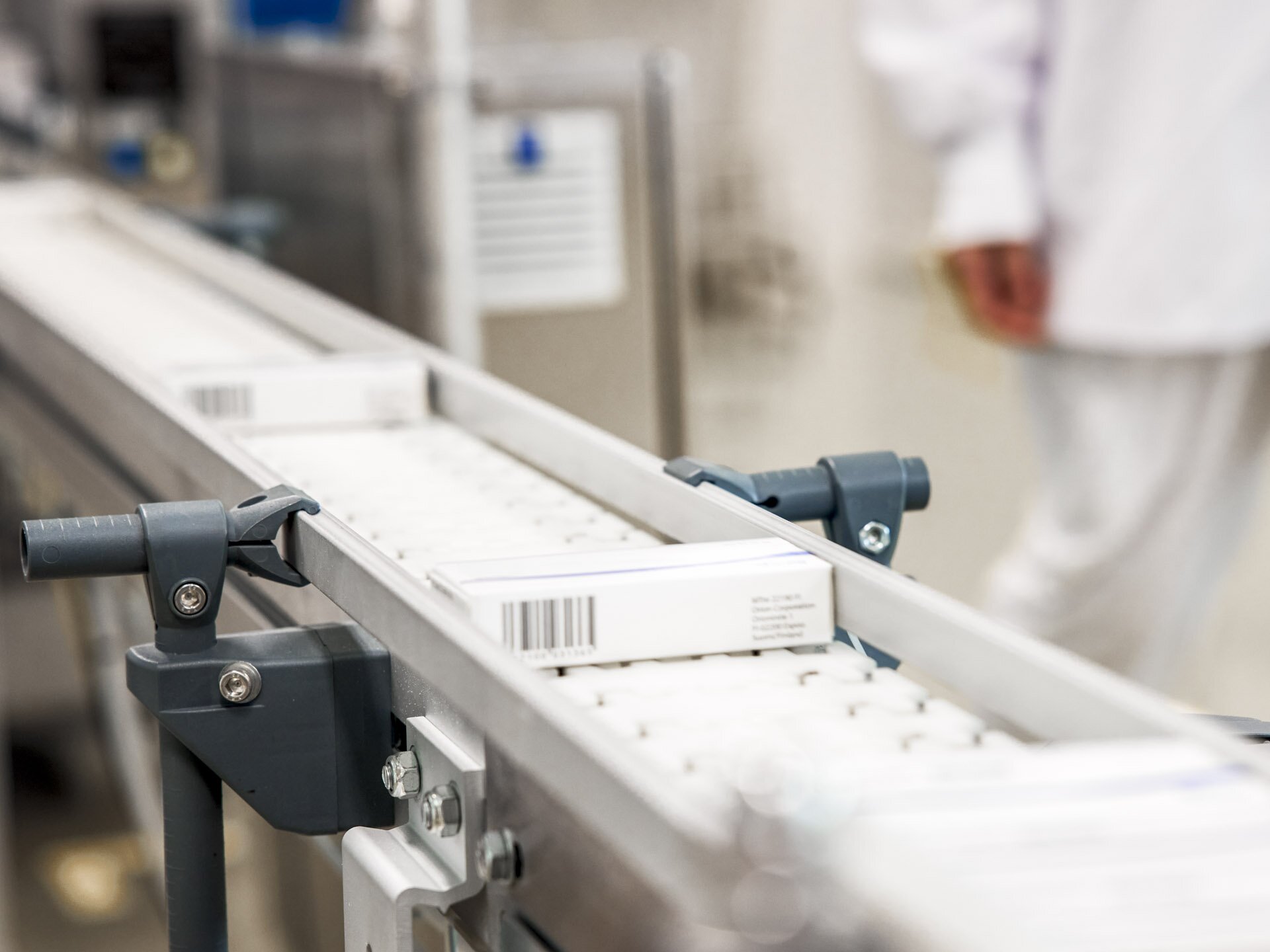The card reads “super dad”, and the drawings support the message. In November 2021, Jukka Saarela from Espoo celebrated Father’s Day in hospital, and his sons, aged five and two-and-a-half, wanted to wish him a happy Father’s Day.
Jukka, then 33, had electrodes implanted in his brain on both sides of his head. He can control the electrodes with a device resembling a mobile phone. The battery is in his chest, and cords run under his skin from the battery to his brain. Saarela can adjust the stimulator in his brain according to the symptoms he is experiencing. Stimulation relieves the motor symptoms of Parkinson’s disease in particular.
“By fooling the brain, I try to find a balance. By controlling the electrical impulses, I can calm the tremors and reduce my medication. It also helps with the stiffness and speech. I can also walk and get around without a wheelchair most of the time.”
By fooling the brain, I try to find a balance. By controlling the electrical impulses, I can calm the tremors and reduce my medication.
Jukka says he is young enough to try all possible treatments. With medication, there is always a limit, however.
The symptoms appeared years before the diagnosis
The first visible symptoms appeared when Jukka was 23: he wasn’t able to control his hand, which became stiff. This made it difficult for him to play the drums.
It took four years to get the diagnosis. During that time, his right hand was examined to determine the cause of the problems. Jukka saw specialists in various fields, underwent scans and even had a cyst removed from his head.
“When the cyst was operated on, my future wife and I were on our third date in the ward. She lived in Tampere, and I went there after the operation to recover. That’s when we really started dating.”
Eventually, an angiogram was carried out to see if he had Parkinson’s disease. It’s not usually found in people in their thirties. Jukka admits that the diagnosis was a relief – the many years of uncertainty had been more difficult. At the time, he was working in a child protection unit in Helsinki.
“The first thing that came to my mind was whether I could have children. In addition to everything else, the disease can be hereditary. The doctor was optimistic, but we decided to bring the wedding forward anyway, and we got married in early 2015.”
Varying condition and functional capacity
Since then, two children have been born into the family. The older, preschool-age child is sometimes stressed out by his father’s changeable condition.
“I’m not always able to play with the boys, but otherwise my illness has become a natural part of our life,” Jukka says.
I’m not always able to play with the boys, but otherwise my illness has become a natural part of our life.
His condition varies widely. Sometimes the symptoms are non-existent, and the illness is not noticeable. That can change in 15 minutes: suddenly Saarela feels like a quadriplegic. Thanks to stimulators, he can increase his capacity to function during weaker moments.
His sleep has been improved by new technology. He used to wake up twice every night, and sometimes stayed awake for a couple of hours. Now he wakes up only once a night.
Jurassic Parkinson tells the story of life with the disease
Jukka considered Parkinson’s to be an old people’s disease, so he wasn’t interested in peer support. He knew only one person who had the same disease: the father of a friend.
“I would advise others to take advantage of peer support or adaptation training courses. My wife and I were going to attend such a course, but the pandemic changed everything. I have given peer support to people who have contacted me.”
Jukka has been on disability pension since 2018. As he was employed at the time, his pension is reasonable. He has founded Jurassic Parkinson, an art collective based on experiences of community, professionalism, artistic passion and fun.
In a way, Jukka has made a name for himself through Jurassic Parkinson, so people are now contacting him because of both his music and his illness.
“My dream has been to do things with a bigger group and interactively. A sense of community brings meaning – it’s an oasis in this journey through the desert. I want to do the things I can do and be a window into the world of disabled artists. With Jurassic Parkinson, I also share my experiences of living with a serious disease.”
Jukka points out that the margins of society can have great potential to tap into.
A world of possibilities despite Parkinson’s
Once a hobby, music has become a way of life for Jukka. He has built a studio in his second home, an apartment in Espoo, where he can make his own dreams and others’ dreams come true in music productions.
Jukka needs an assistant, especially for his work with music. While the head creates ideas, the hands don’t always work. Jurassic Parkinson has released two music videos with songs written and composed by Jukka. He is also the band’s singer.
“I haven't been able to do any gigs, but I’m aiming for at least one this year. It’s a challenge, but totally doable. We have various applications pending, and the dream is to make a record.”
Jukka says he is happy with his life.
“The treatment has gone according to plan, and I have been heard. I also want to use my music to encourage others to realise their dreams. Everyone has opportunities.”
Jukka Saarela’s thoughts on Parkinson’s disease
- The stimulator has been very useful. It increases functional capacity.
- My illness has become a natural part of our family’s life.
- It’s worth taking advantage of peer support or attending an adaptation training course.
- Community brings meaning to life.
- I want to use my music to encourage others to realise their dreams.











